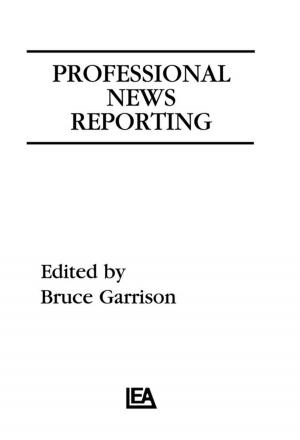| Author: | ISBN: | 9781135426248 | |
| Publisher: | Taylor and Francis | Publication: | July 22, 2005 |
| Imprint: | Psychology Press | Language: | English |
| Author: | |
| ISBN: | 9781135426248 |
| Publisher: | Taylor and Francis |
| Publication: | July 22, 2005 |
| Imprint: | Psychology Press |
| Language: | English |
Some of the most fascinating deficits in neuropsychology concern the failure to recognise common objects from one semantic category, such as living things, when there is no such difficulty with objects from another, such as non-living things. Over the past twenty years, numerous cases of these 'category specific' recognition and naming problems have been documented and several competing theories have been developed to account for the patients' disorders.
Category Specificity in Brain and Mind draws together the neuropsychological literature on category-specific impairments, with research on how children develop knowledge about different categories, functional brain imaging work and computational models of object recognition and semantic memory. The chapters are written by internationally leading psychologists and neuroscientists and the result is a review of the most up-to-date thinking on how knowledge about different categories is acquired and organized in the mind, and where it is represented in the human brain. The text will be essential reading for advanced undergraduates and researchers in the field of category specificity and a rich source of information for neuropsychologists, experimental and developmental psychologists, cognitive scientists and philosophers.
Some of the most fascinating deficits in neuropsychology concern the failure to recognise common objects from one semantic category, such as living things, when there is no such difficulty with objects from another, such as non-living things. Over the past twenty years, numerous cases of these 'category specific' recognition and naming problems have been documented and several competing theories have been developed to account for the patients' disorders.
Category Specificity in Brain and Mind draws together the neuropsychological literature on category-specific impairments, with research on how children develop knowledge about different categories, functional brain imaging work and computational models of object recognition and semantic memory. The chapters are written by internationally leading psychologists and neuroscientists and the result is a review of the most up-to-date thinking on how knowledge about different categories is acquired and organized in the mind, and where it is represented in the human brain. The text will be essential reading for advanced undergraduates and researchers in the field of category specificity and a rich source of information for neuropsychologists, experimental and developmental psychologists, cognitive scientists and philosophers.















